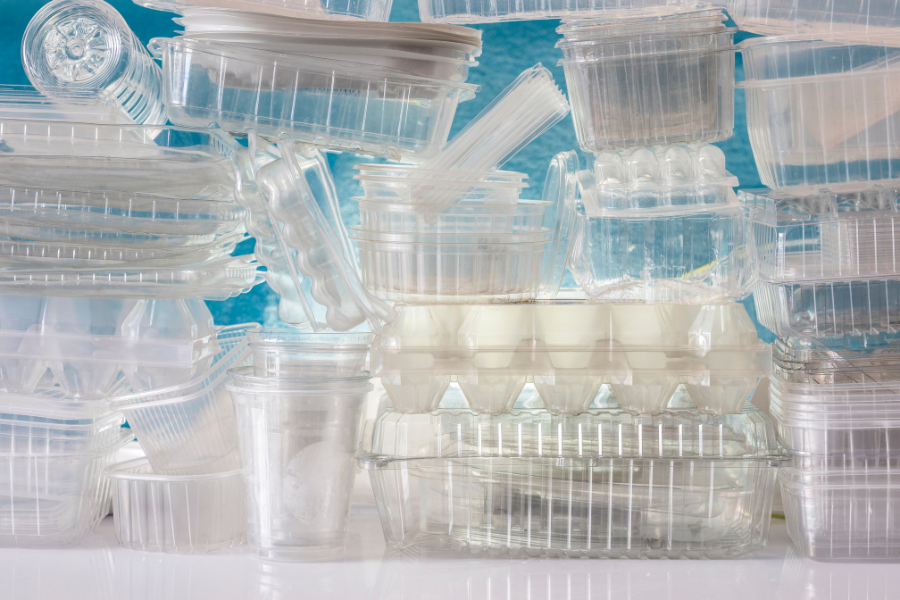
The Circular Action Alliance will coordinate producer responsibility efforts around the recovery of paper and plastic packaging in Colorado. | Konektus Photo/Shutterstock
In a big step toward implementing one of the nation’s first extended producer responsibility programs for packaging, Colorado selected Circular Action Alliance as its producer responsibility organization.
A nonprofit group formed by some of the biggest brand names in the packaging sphere, Circular Action Alliance will be in charge of fulfilling covered producers’ responsibilities under the state’s paper and packaging EPR legislation, passed last year.
Such requirements include meeting recycling convenience standards, achieving post-consumer recycled content thresholds and reimbursing 100% of net recycling services costs to public and private recycling service providers.
Circular Action Alliance was formed in response to the passage of extended producer responsibility laws by Colorado and several states starting in 2021.
The group was founded by The Coca-Cola Company, General Mills, Keurig Dr Pepper, Procter & Gamble, Nestle and several other well-known brand names.
“To ensure that we can deliver on timelines and requirements outlined in the statute, we have assembled a team of EPR experts with experience in the development, implementation and operation of producer responsibility programs in North America,” its letter of intent submitted to Colorado stated. “They have a keen understanding of what will be required in Colorado and have begun the necessary project planning and discussions with key stakeholders.”
As EPR bills for paper and packaging have passed in the United States, major questions have swirled around what a U.S. producer responsibility organization (PRO) may look like.
Colorado is the first state that required a PRO be named, and the emergence of Circular Action Alliance offers a look at how producers will be coordinating to meet the requirements under various laws.
Charlie Schwarze, Circular Action Alliance board chair and director of sustainability at Keurig Dr Pepper, said in a statement that the group is honored to be chosen and “looks forward to helping all paper and packaging producers in Colorado meet their obligations by coordinating, funding and managing the state’s recycling system.”
Making the selection
The Colorado Department of Public Health and Environment (CDPHE) chose the PRO based on criteria in the Producer Responsibility Program for Statewide Recycling Act, which include having a diverse list of participating producers representing a variety of material types, enacting a clear funding mechanism for an initial needs assessment and sharing governing board composition. Along with Circular Action Alliance, H2 Compliance also applied.
Additional PROs in Colorado can be designated if the state finds it is necessary in the future.
Jill Hunsaker Ryan, CDPHE’s executive director, said in a press release she is “thrilled we are moving forward with implementing this landmark legislation.”
“Over the last several years, Colorado has made tremendous progress to help move us towards a more sustainable future,” she added. “Producer responsibility is a solution that helps to solve some of the major gaps concerning supply chain, recycling end markets and accessibility of recycling.”
Circular Action Alliance will first carry out a needs assessment, due by Jan. 30, 2024, of the recycling services currently provided in the state and the needs that are not being met. A plan for the program, due by Feb. 1, 2025, will set minimum recycling rate targets for 2030 and 2035. The full program is intended to roll out in 2026.
Oregon overlap
In Oregon, the application process is different, but the interested PROs are similar.
By March 31, 2024, interested producers will have to pay a fee and then submit a plan for managing the EPR program. The state will then base its decision off the plans, choosing either one PRO or a combination.
The Circular Action Alliance and H2 have also shown interest in Oregon, along with Reverse Logistics Group.
Olivia Barker, spokesperson for the Circular Action Alliance, said the organization “is actively working toward submitting a program plan under Oregon’s Plastic Pollution and Recycling Modernization Act in early 2024.”
“We will be participating in the next Rulemaking Advisory Committee and will continue to collaborate with the Oregon Department of Environmental Quality and system stakeholders to support innovation and higher recycling rates in the state,” she added.
H2 did not reply to requests for comment. Andriana Kontovrakis with Reverse Logistics told Resource Recycling that the company missed the deadline to apply in Colorado, because it only recently decided to get involved.
“We have a lot of experience in the field and a lot of the time when new laws pass that are EPR-related, customers come to us asking questions and we try to meet their needs and step up,” she said.
Customers had been asking Reverse Logistics about the EPR laws that have passed in four U.S. states, and Kontovrakis said the company decided to put its decades of experience into the running. It is currently operating more than 40 PROs for batteries, packaging or electronics around the world, she added.
“The U.S. is very different because a lot of producers here are U.S. only and have no exposure to other places and are not familiar with submitting data about their packaging and how it’s going to work, what they pay in, what type of responsibility they have, even what a PRO is,” Kontovrakis said.
More electronics manufacturers are familiar with it now, she added, but that’s a smaller industry, and packaging “touches almost anybody selling products into any of the covered states, so it’s kind of going to be a sea change for a lot of people.”
More stories about EPR/stewardship
- CAA publishes revised Colorado program plan
- WM outlines investments in recycling infrastructure
- ‘Operational readiness is high’ as Oregon rolls out EPR


